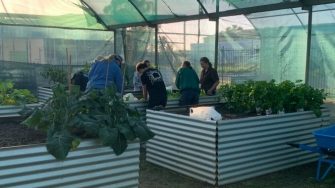UNSW students learn from community-led project in Bourke
Landscape Architecture students from the UNSW School of Built Environment were privileged to spend ten weeks on Ngemba-Baakindji Country in the New South Wales town of Bourke as part of a community-led Professional Placement in late 2022.

